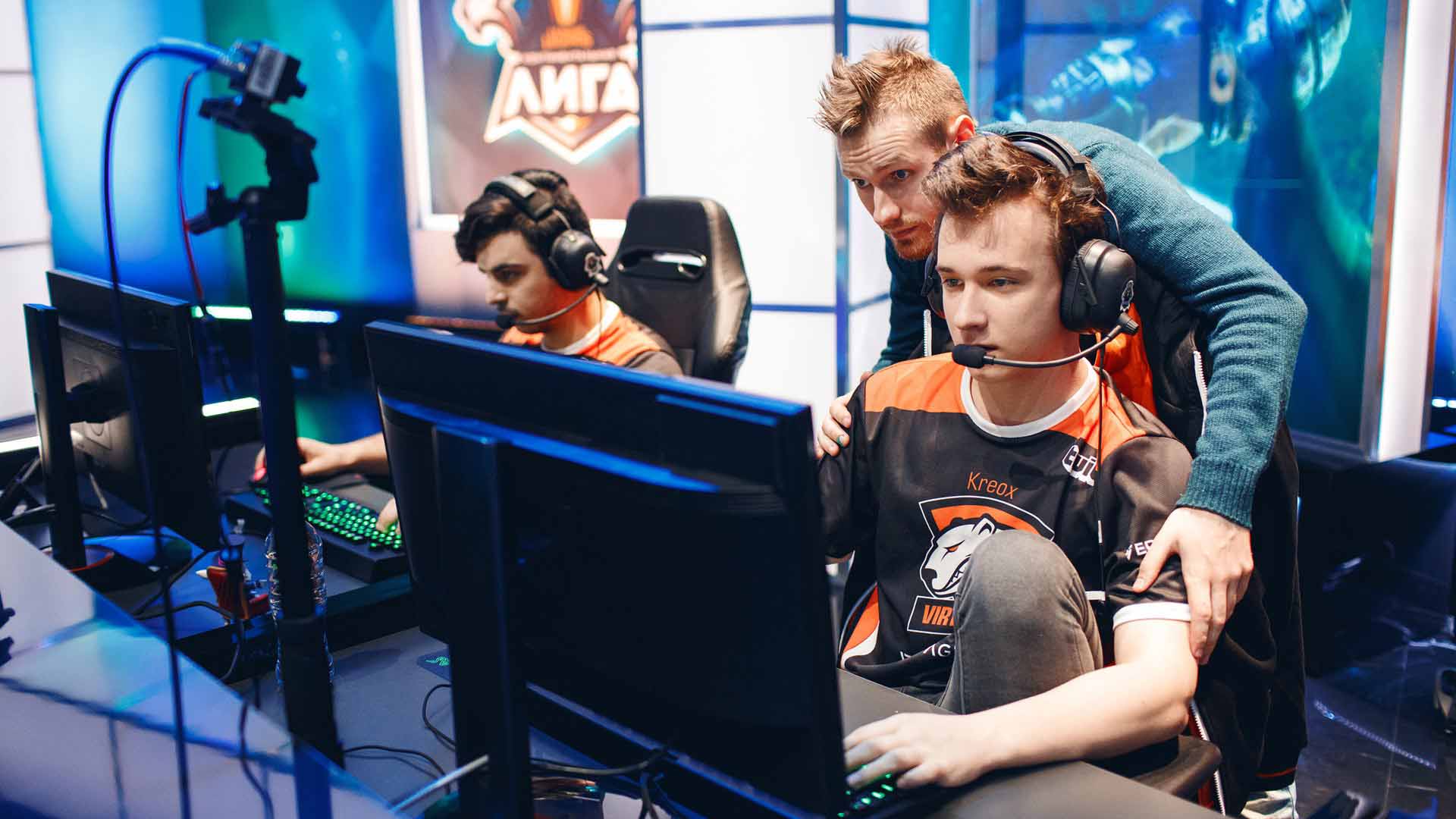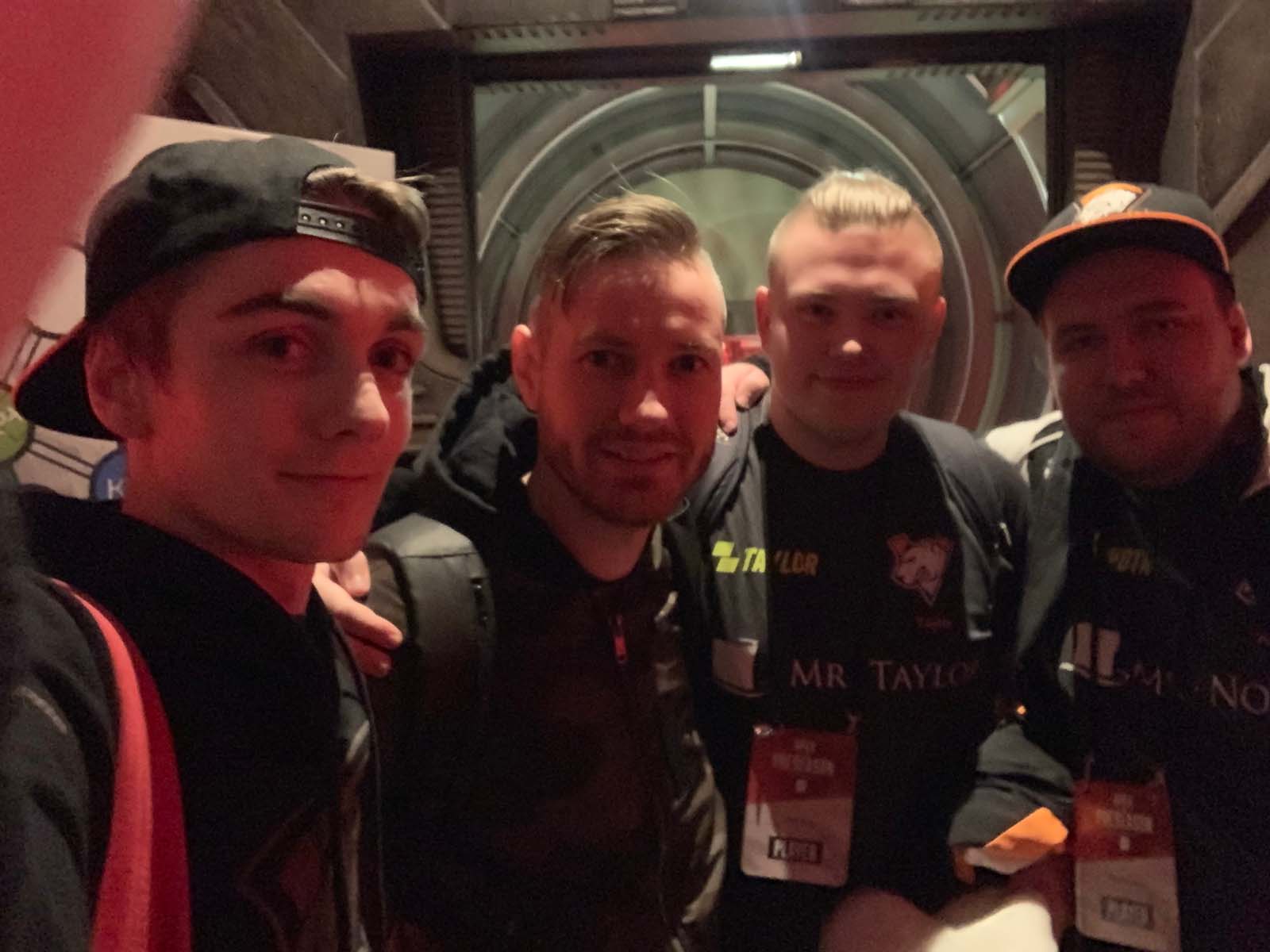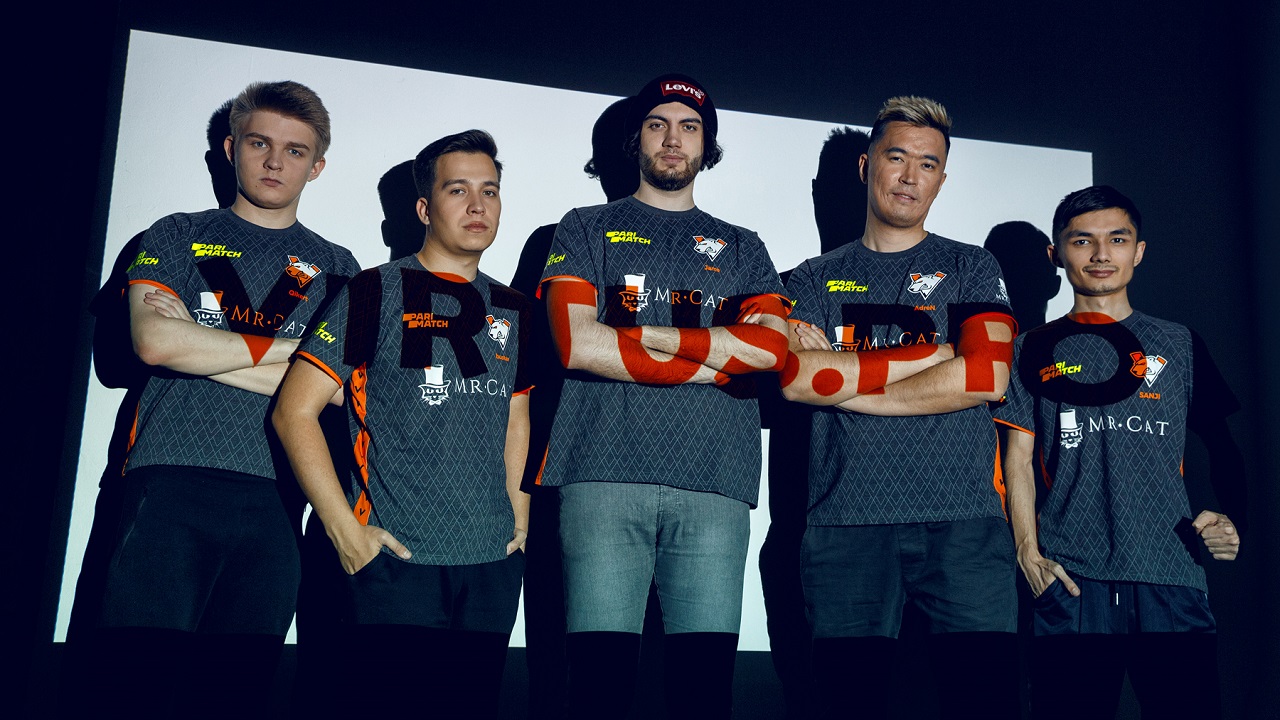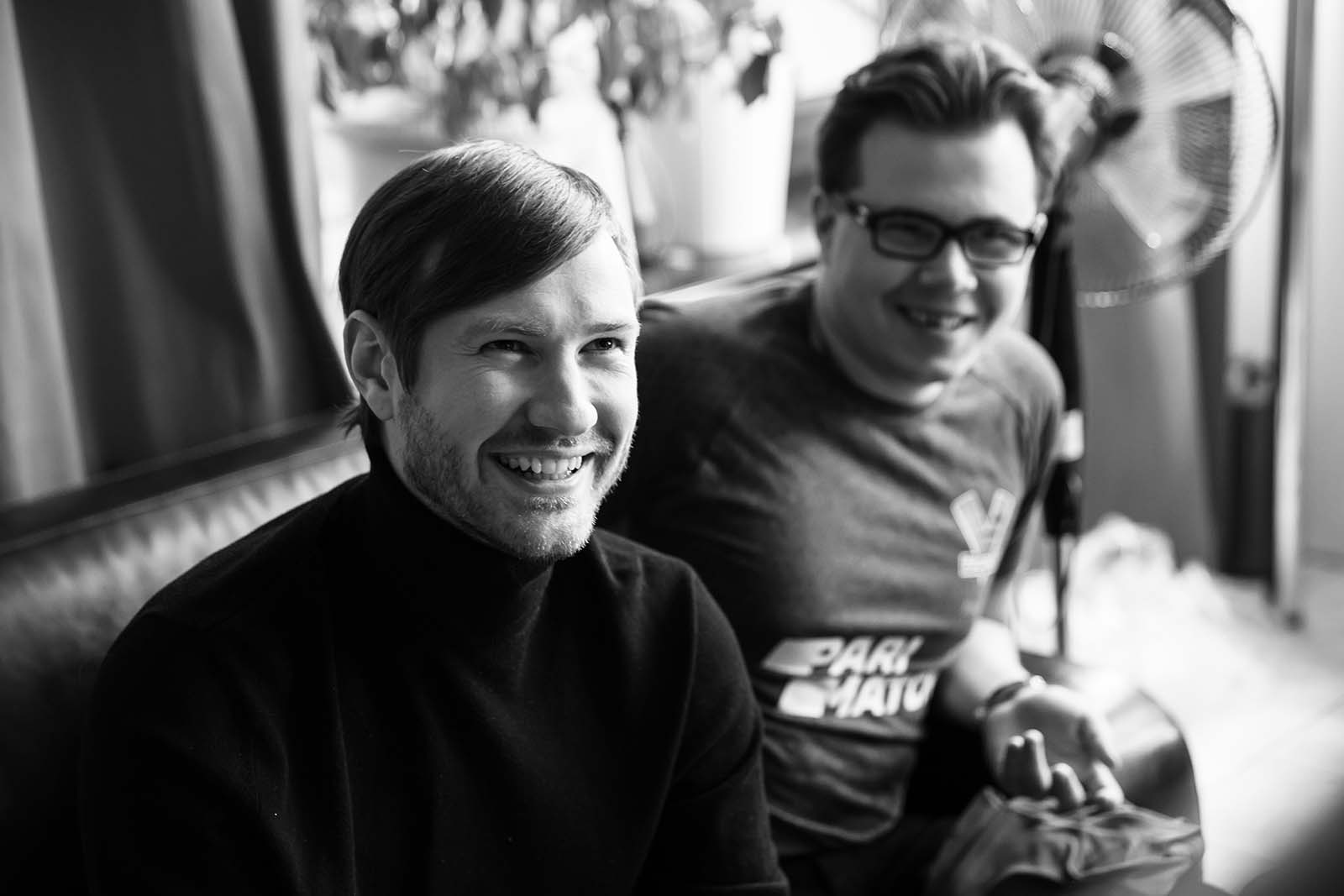"Tier-3 scene in CS:GO is filled with radar cheaters and bettors". VP Esports Development Manager shares some stories collected through years of working in the club
Before VP
I joined Virtus.pro in 2017. Before that I used to work as a press attaché in a football club from the third Russian division called “Dolgoprudny”. I even have a certificate of appreciation from the Mayor for my efforts in developing regional football. After three years there it was time for me to go for something new. I wanted to keep working in this field but there weren’t many job offers in sports. And then I came across this offer from VP who needed a Dota 2 team manager.

At the time I already knew about CS:GO and Dota 2. Once I had a leg fracture and watching TI was the only entertainment available for me. Then my friends also introduced me to LoL, so I knew a lot about Virtus.pro: The Kiev Major run, LCL Spring championship and so on.
After a few rounds of job interviews I began to wait. At the time our football team had an exhibition match that our coach didn’t care enough about, so he just skipped it. Our second coach and I took control of the team, but during the second half of the match I got a message from VP that the job was mine. I waved goodbye to the team right in the middle of the match. That’s how my career in esports started. Initially, I responded to the job offer of the Dota 2 team manager, but they had already found a guy. I was offered to take the LoL team instead and I agreed.
League of Legends
I always thought of myself as a sociable and easygoing person who can make contact with anyone. Boy was I wrong! At first we used to communicate with the players from our LoL squad online. The roster was Kreox, SaNTaS, Paranoia, Doxy and we needed a replacement for a guy who left for Gambit. We found a player, P1noy, but we were under a deadline to send the paperwork to Riot. I like to goof around sometimes, but the poor guy didn’t know me very well. So when I told him something like “If you don’t send me the papers now, I’ll kill you!”, he almost had a heart attack. He got so scared he even reached out to our CEO. We figured everything out and started our preparations for the upcoming season.

We came to bootcamp only to find that nothing was ready. There even was no internet! Somehow we solved the problems, but every single day I had to deal with the local internet guy who kept telling me that there was no way to fix yet another problem. Our team had made it to the playoffs and pretty much everyone expected us to play in the final against Gambit, but we lost to M19 in the semifinal. After that, we met with the CEO to consider our options in this discipline. We thought about inviting Likkrit, but eventually decided to drop the roster and step out of LoL.
Quake, Paladins, Apex Legens and CCGs
Apart from the LoL roster, I already had another one at the time. We’ve just signed Cypher to our Quake squad, but unfortunately, he didn’t manage to solve his Visa problems and had to skip the QuakeCon. Cypher himself suggested we take Av3k in his stead, but the problem was that we had around two days before the flight. I arranged everything, his contract was ready just before the departure, the jersey got delivered to him from Poland. But in doing so I caused mayhem in our office. The HR and Legal Department sent a lot of complaint letters. Roman Dvoryankin even told me: “You did a great job, but let’s not do things this way ever again.”
I took a week off and flew to Wroclaw, where Av3k lived. When I came back, Roman told me: “This whole LoL thing didn’t work out for us, but now there’s an insane new game we are about to join. It’s Paladins!” The problem was that we had to assemble the roster on our own. The developers sent us a list of noticeable stacks and we ended up with Lev Strokov, the father of Russian Paladins, on our side. I even joined Twitter to communicate with him! We managed to build a great roster (Isbittenner did win PWC 2019 with NiP later on). The guys went to Alpharetta as the underdogs, but guess who came home with a huge trophy?!
Who knows how things would’ve played out if it wasn’t for Hi-Rez’s desire to turn PPL into a franchise like Overwatch League. They wanted the players to live in the USA and play from there, which created a lot of issues. Most of all: It wasn’t cheap and demanded a lot of paperwork. One of our players failed to get his Visa, then another one had to leave the roster, so I started looking for stand ins. We managed to assemble yet another strong roster with Kcruncy and Eraze, but eventually we lost to NiP in the semifinal. After that, Paladins as an esports discipline ceased to exist.
On top of that, I had another roster to manage — the Hearthstone one, which later became Artifact. There wasn’t much to manage, to be honest. Naiman used to play and win some tournaments and get like $800, which was pretty good money, considering some people could get a deck of cards as a prize. Also, there was a roster in Apex Legends. It was my idea to dive into this discipline.
I knew EA had big plans for the game, so I found and signed this team, FlavorOfTheMonth.

We had subpar results in our first LAN, but eventually we qualified for the Major. It was supposed to be held in Texas, so I found a local computer club that allowed our boys to play there for free and prepare for the tournament. And that’s where this whole pandemic thing started. The guys had to return home, and as soon as we realized that the quarantine was going to last, we were forced to drop the roster.
By that time I had already worked with rosters in LoL, Quake, Hearthstone, Artifact, Paladins and Apex Legends. I even got offered to take the Dota 2 roster, but we all agreed that it just won’t work out. Instead, I started working with our CS:GO roster.
CS:GO
I wasn’t involved in the signing of AVANGAR. As a matter of fact, I was on vacation at the time. When I got offered to work with the guys, it didn’t take me long to think about it. For me, working with the CS:GO roster is the highest stage of a managerial job. We came to our first tournament and it became obvious that the guys were exhausted. They spent the whole year flying around the world and playing tournaments at the peak of their abilities, so clearly, they needed some rest. A lot of things had to be done to make this team work.

I never had a friend relationship with any of my rosters. I don’t know if it’s a good or a bad thing, but it’s been this way since the very beginning. I work for the club, not the players. In the CS:GO roster the most strict relationship I have is with Qikert. We only talk business, nothing more. But we are a lot closer with buster, we used to talk a lot, especially when he was coming out of inactive.
Mareks is a very positive guy who’s always open for a good talk. SANJI has all the answers in the world, he’s a man of many interests. He’s really into cryptocurrency, investments and finance. And he’s also very easygoing.
Jame is always interesting to talk to. If he likes the conversation, he can spend hours talking. He’s the person that changed the most since joining VP, he is a lot more approachable now. I really hope he’ll become a coach after his playing career is over.
Changes in roster
After Leipzig we had our first talk about buster going inactive, but after Katowice it was decided. At the time, Tim just had enough of CS:GO. He’s been playing it since he was 14, since 16 he was a pro player with constant bootcamps and flights. He needed to take a break and we gave him all the time he needed. When it came to finding a replacement, Mareks was our best option.
Then it was Dastan’s turn. Stepping away from the team and then coming back proved to be a good move. He came back as a better version of himself. I found Flatra and MaAd myself, they worked with the team but didn't manage to get any real progress. It was a good experience, but they just didn’t click with our roster.
After every tournament we discuss our results with the CEO. There are some things that I can’t control, but generally, I take responsibility for our performance.
New role
I’m no longer a team manager, now I’m an Esports Development Manager. I’ve been a team manager for 4 years, but now I have a wife and a child, so I can’t spend as much time on bootcamps as I used to. And I also wanted to keep developing and this new position is a logical step in my career. Props to Sergey for asking my opinion on a lot of things regarding our rosters. We discussed signing or our R6 squad, I insisted on joining PUBG and PUBG MOBILE.
Now I do scouting for all of our disciplines, communicate with game publishers and work on joining new disciplines. For example, now we are negotiating joining one mobile game. And I also work on VP.Prodigy rosters and creating an academy.
VP.Prodigy in CS:GO
First iteration of VP.P in Dota 2 became an instant success. It had been launched almost at the same time with the transfer of YEKINDAR, which reminded us about the costs of players in esports. We can’t afford to keep buying out players if our teams are underperforming. I talked to Sergey and we agreed that we needed a CS:GO roster for VP.Prodigy.
The first roster was built around our coach, Flash_1. In my opinion, he’s one of the most promising coaches in CIS. We had some mutual acquaintances who arranged our meeting. I like the way he approaches the training process, builds the structure of the game and works on new strategies.

The first roster didn’t have any success due to a lot of reasons. One of them is the tier-3 scene in CS:GO being filled with radar cheaters and bettors. People may laugh at the fact the VP.P can’t even beat some tier-3 team, but they just run at you and use their grenades perfectly every time. We’ve collected enough material and sent it to the people who may get to the bottom of it.
We disbanded the first roster and started from scratch. But this time around we decided to put a player in charge of the roster pick up. That’s when RuFire showed up. He’s a well-known person in the underground of CS:GO, he has enough experience in both working with young talents and managing a team in general.
First and foremost VP.P is the team that gives younger players a shot. We are not focused only on developing the players for ourselves. If some other team is interested in our players, we are always ready for negotiations. That is the main difference between the first VP.P roster and this one. Of course, we still want to grow a new generation of players for ourselves, but we are also willing to work with a big number of young talents.
So we keep searching. The main criteria are pretty simple: talent, desire to work hard and an appropriate age. We won’t launch another VP.P roster even if the number of players matching our criteria will be too high. Each of them will get a chance to prove themselves in competitive games. We will base our judgement on their progress by their games in WePlay Academy League, which is set to have several seasons. If the players keep performing on a good level after VP.P, this would mean we did a good job.